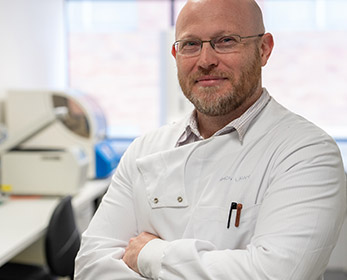Researchers at Edith Cowan University's (ECU's) Centre for Precision Health have uncovered a significant genetic connection between Type 2 Diabetes and certain gut disorders, which could pave the way for more effective therapies.
The research found that gut disorders like stomach ulcers, irritable bowel syndrome and acid reflux could share similar biological origins with Type 2 Diabetes, meaning that some of the same genes played a role in these conditions.
"Prior studies have suggested a connection between these conditions, and although the mechanisms remain unclear, reports associating gut conditions with diabetic complications underscore the substantial impact of their coexistence on health outcomes," said lead researcher Dr. Emmanuel Adewuyi.
"Our study employs a genetic approach to unravel the intricate relationships of these seemingly unrelated conditions. By uncovering their genetic underpinnings, we have laid the foundation for targeted treatment and personalised care. I am optimistic about its potential to enhance the lives of millions, worldwide".
Diabetes has reached pandemic proportions with over 536 million people globally living with the disease by 2021, and with the illness resulting in more than 6.7 million mortalities. Type 2 Diabetes accounts for between 90% to 95% of all cases of diabetes.
The co-occurrence of Type 2 Diabetes and gut disorders can speed up disease progression and increase healthcare costs, leading to complex management plans and poorer quality of life for patients.
This co-occurrence could also contribute to the actual development of these disorders through shared genetics mechanisms and biological processes or causal relationships.
Surprisingly, however, unlike the other gut conditions, the study found no genetic connection between Type 2 Diabetes and inflammatory bowel disease (IBD), showcasing the complexities of these conditions.
Dr Adewuyi noted that understanding the relationship between Type 2 Diabetes and gut disorders could advance knowledge of their underlying biological mechanisms, identify targets for further investigation, and provide opportunities for treatment development, evidence-based clinical decisions, or precision prevention strategies.
"This research marks another significant milestone in our Centre's statistical genetics research program that seeks to unravel the intricate relationships across many of today's major health conditions," Professor Simon Laws, Director of the Centre for Precision Health and supervisor of the study remarked.
"By delving into the genetic architecture of Type 2 Diabetes and various gut disorders, we have uncovered novel insights that could pave the way for more effective therapeutic strategies. Deciphering the underlying mechanisms linking these conditions has the potential to lead to improvements in patient care and outcomes."
Researchers say further research will be essential to translate these findings into tangible benefits for patients worldwide.
Read the full paper in the Communications Biology journal.

 The co-occurrence of Type 2 Diabetes and gut disorders can speed up disease progression.
The co-occurrence of Type 2 Diabetes and gut disorders can speed up disease progression.



